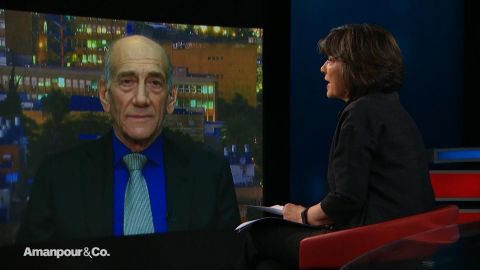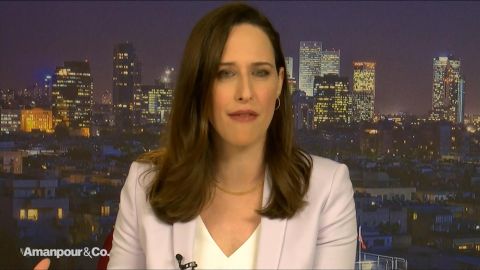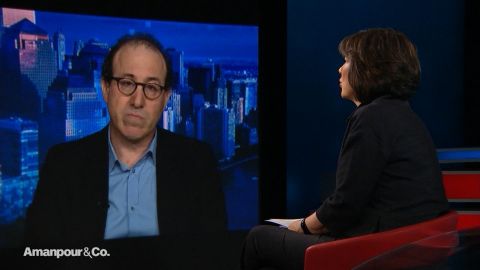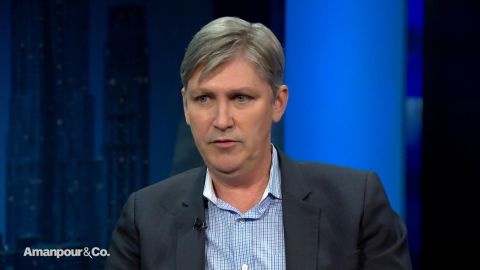Read Transcript EXPAND
LEVI: Well, Christiane, I mean you must say one thing and he — of course Olmert is one of many Netanyahu’s staunchest opponents and it’s important to bear in mind that Netanyahu has not yet been convicted. He hasn’t even been officially indicted of corrupting charges. But indeed the ground is shaking under his feet because the attorney general has decided to indict him pending a hearing of course, a hearing that will happen only after the elections. This is quite a wild ride. These are unchartered territories, never before in the history of this country has a prime minister been running for office again while having this huge sort of shadow of these legal problems and for the first time in a decade there is this challenge — a real challenge from the opposition from Benny Gantz. And I found it quite interesting that Olmert said, and again being from his position saying Benny Gantz is going to be the next prime minister of Israel. I think a lot needs to happen in the next 36 days until the Election Day for that to happen.
AMANPOUR: When you say that, why? Because he’s not as strong in the polls as Olmert would like to believe. What is the political sort of table setting? How does it feel amongst people? Where are the people in Israel right now?
LEVI: Well, it’s important to note that for the first time last week the very new party called the blue and white party that Benny Gantz basically initiated two weeks ago, nearly two weeks ago with two other former chiefs of staff. And of course (inaudible) is also a prominent player in this interest politics in Israel. This party passed the (inaudible) in opinion polls and also very important for Israeli — the Israeli politics, because to be a prime minister you don’t have to only to lead the largest part, you also have to be the leader of the biggest block, a collision that you need to form that has to be larger than 60 members because the Israel parliament has 120 members. So for the first time Benny Guntz actually passed Netanyahu in the polls. But it’s important to remember, Christiane that Benjamin Netanyahu managed to stay prime minister I think for three main reasons for the past ten years. First of all, he has cultivated — successfully cultivated the era of being Mr. Security. He is the only one who can deal with Israel’s complex problems and there is no viable opposition and the third reason is that he convinced Israelis that any criticism — criticism of him was politically motivated. Now what has shifted very dramatically is now that there is a political party made out of three former chiefs of staff of the Israeli army, it’s very hard to say — for Netanyahu to still say I’m irreplaceable and I’m the only one who understands Israel’s complicated security issues. So it’s going to be a very interesting really kind of war between — between these two parties, between these two figures.
About This Episode EXPAND
Christiane Amanpour speaks with former Israeli Prime Minister Ehud Olmert and journalist Yonit Levi about the complex state of affairs in Israeli politics; and discusses protecting journalists with Joel Simon, Executive Director of the Committee to Protect Journalists. Walter Isaacson speaks with Steven Johnson, author of “Farsighted,” about how we make the decisions that matter most.
LEARN MORE



